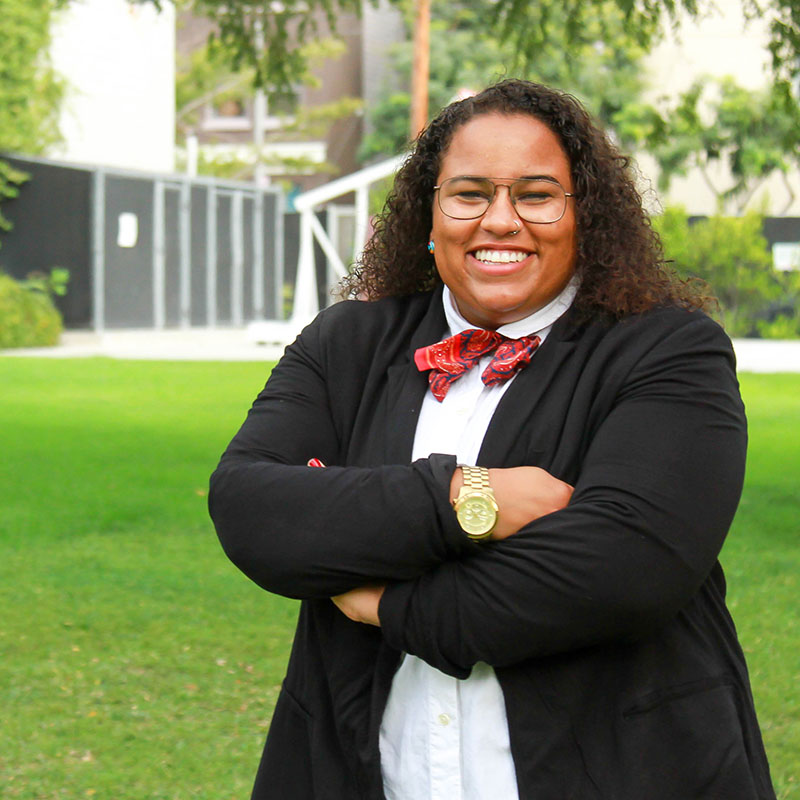JIFS Clinic Gives Student the Chance to Make A Difference

Arguing on behalf of a client before the California Court of Appeal recently, student Lauren Sapp ’17 reaffirmed her mantra: “Helping out a real person, there’s nothing like it; it means everything to me,” she said
As a member of Loyola’s Juvenile Innocence & Fair Sentencing Clinic, Sapp is charged with crafting legal arguments and personal narratives to advocate for the early release of her clients – mostly adults serving life in prison on sentences handed down on juvenile convictions. It can be labor-intensive: For her recent appearance, Sapp pored over 20-year-old court transcripts for days, preparing herself for nearly any question the presiding judges might throw her way.
JIFS, however, has been a transformative component of Sapp’s legal education. With the clinic, she’s not only able to put her education to practical use, but she’s also able to see, firsthand, how an attorney can bring about momentous, beneficial change with hard work and perseverance.
Sapp has been tasked with a range of assignments, from drafting motions and arguing before judges, to participating in resentencing hearings and visiting prisons throughout the state. The wealth of experience is not lost on Sapp. “I do more in JIFS than I ever get to do in the classroom,” she said.
A native of Pasadena, Calif., Sapp relishes JIFS’ role: advocate for the underdog. With JIFS, Loyola students represent individuals who committed crimes when they were minors and, in some cases, were sentenced to life without parole. Students with the clinic work to give these people—many who have spent the majority of their adult lives in prison—a second chance.
“I want to help people who others simply don’t care about,” she said. She noted that balancing school and the clinic is challenging. “You have to eat and sleep JIFS clinic, every day.”
Aside from the important practical experience, Sapp said that the clinic allows her to effect change and bring hope to those who often feel marginalized and forgotten. Helping clients gain a second chance has influenced her thoughts on a legal career—once she graduates, she’s considering working as a public defender. There’s a need, she pointed out, for high-quality attorneys in this legal field. “A lot of our clients would’ve been out by now if they had better attorneys,” she said.
The clinic also has offered something that Sapp will miss once she graduates—camaraderie. JIFS students put in long hours with one another, and she knows that she will look back on her days with the clinic fondly. “I’ve worked so much with my Loyola JIFS colleagues that they feel like family,” she said.